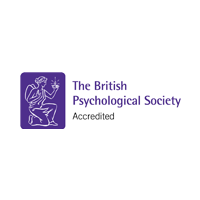Immerse yourself in the exciting field of health psychology on this BPS-accredited course. You’ll mix theoretical learning with a 16-week work placement.
Throughout this course, you’ll gain a solid grounding in the main areas of health psychology, which you’ll be able to demonstrate in an applied setting during a work placement.
It is British Psychological Society (BPS) accredited. This means you’ll gain contemporary and relevant knowledge that you can use in a range of careers in health related research, public health and healthcare. The accreditation also ensures you have Stage 1 competencies in health psychology, which you will need if you wish to proceed to Stage 2 doctoral-level training to become a registered health psychologist.
During your studies, you’ll explore this fascinating subject in a multidisciplinary context, focusing on:
- preventing ill health
- managing long-term health conditions
- developing effective healthcare provisions
This will give you a better appreciation of how psychology can be used to help us better understand health and health behaviours, and design interventions to improve people’s wellbeing.
Your academic learning will be complemented by hands-on experience of health psychology during a 16-week placement. This will be an opportunity to use the knowledge you’ll gain in class while improving your employability with real-world experience.
You’ll also learn about research in healthcare settings, looking at issues such as research design, governance and ethical considerations. This will prepare you for conducting your own independent piece of research to finish the course.
If you are a psychology graduate interested in progressing to a career in health psychology as a practitioner or researcher, this course is suited to your needs. It’s also suitable if you are working in health and social care settings and want to learn more about theory and practice to progress your career.
Learn from experts in the field
You’ll learn from experts in health psychology, as well as staff in the wider Department of Psychology community. Their passion, knowledge, experience and research shape their teaching to enhance your learning experience.
Use specialist facilities
The Department of Psychology is located in a new £30 million building.
You’ll be able to use this space for your seminars, group meetings and computer work. The building contains advanced psychology research facilities, including:
As an MSc Health Psychology student, you’ll have access to a bookable workspaces in 10 West. These contain PCs and are also suitable for group working.
Gain important career skills
Upon successful completion of this course, you’ll have gained:
- enhanced research skills that can be applied to primary, secondary and tertiary health and social care settings
- core knowledge of health psychology approaches, theories and models
- a strong foundation for further postgraduate training in health psychology
You’ll also receive comprehensive support to help you find and prepare for graduate positions, placements, and a variety of other employment opportunities. This will include sessions that cover professional skills development.
We’ll also provide you with information about progressing to doctoral study and/or Stage 2 Health Psychology training.
Graduate prospects
Studying this course will prepare you for moving into a wide range of health-related posts within universities, government departments, the private sector and charities.
The skills you gain will also act as a solid foundation for going on to undertake a PhD, Stage 2 professional doctorate, further clinical psychology training or work as a research assistant.
Recent graduates of this course have gone on to work in a wide variety of roles, including:
- Project Executive at a national cancer charity
- Public Health Researcher at a local council
- Trainee Health Psychologist
- Research Officer at the Office for National Statistics
- Assistant Psychologist within the NHS
- Doctoral student on a UK doctoral-level counselling course
- Research Assistant at a European university
- Teaching Assistant
- Doctoral student on a UK doctoral-level clinical psychology course
Watch our latest webinar about this course
